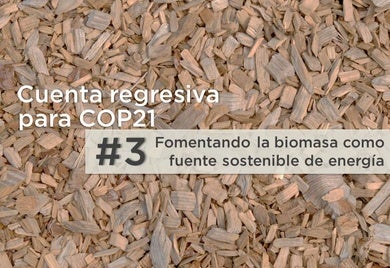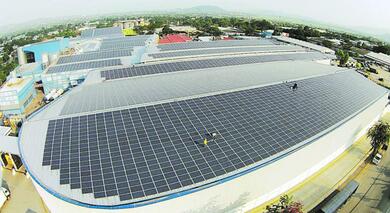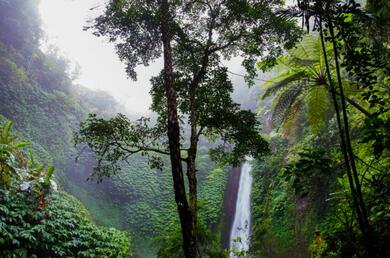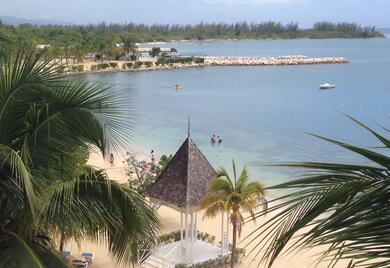Posts by Energy

5 reasons to rethink biomass in Latin America
With less than a week to go until COP21, governments across the globe make their preparations to achieve an international, legally-binding agreement on climate change. And the progress is apparent. Over 140 countries, including most of Latin America and the Caribbean, have submitted their respective Intended Nationally Determined Contributions (INDCs). These action plans allow governments to communicate internationally where climate actions will take place post-2020. One conclusion so far: clean energy will be fundamental to carbon emission reductions for all governments, including top global carbon emitters. With this is mind, it is important to remember the benefits of an underutilized renewable energy technology: sustainably sourced biomass.

A Green Revolution under the Central American Sun: Solar energy in Honduras
[caption id="attachment_2625" align="alignleft" width="448"] Solar energy in Honduras: the roof of Embotelladora de Sula[/caption] The same sun that bathes Central America’s beaches is an increasingly valuable asset for many companies in the region. That is the case with the Honduran bottling plant Embotelladora de Sula, one of the largest rooftop photovoltaic projects in Latin America.

What is the Value of Nature?
An apple at a supermarket: $0.50. 1,000 gallons of tap water in New York City: $4.95. Annual value of pollination to agriculture: $200 billion. Cost savings from good land management in New York City's watershed: $8 billion. Total value of benefits from nature: priceless? Robert Costanza, a leading environmental economist, just published the article: "Changes in the Global Value of Ecosystem Services," where he estimated the total value of these benefits at $145 trillion per year. That’s about twice as much as the total output of the global economy. Some of the value that nature provides has an obvious cost. Other values don't directly affect your wallet and are less visible. But just because we don't pay for some of nature's benefits doesn't mean they have less value.

Every watt matters: Geothermal and COP20
Latin America and the Caribbean leads the world in renewable energy. Hydropower makes up 60% of the generation matrix. Still, there is vast untapped potential for low-carbon energy development. During my current trip to the COP20 in Lima, Peru, I had a chance to focus on the long-established source of renewable energy that has yet to reach its full potential: geothermal in Latin America and the Caribbean.

The top 10 developing nations investing in clean energy
By: Agustín Cáceres The history of investing in clean energy in developed countries like Denmark, Spain or Germany is well known: big investments, subsidies, and an energy matrix that is much greener than that of other developed nations likes the US or Japan. However, developing nations represent a large and rapidly growing share of the world’s clean energy investment, according to Climatescope 2014, a country-by-country assessment, interactive report and index that offers the clearest picture yet of clean energy in 55 emerging markets in Africa, Asia, and Latin America and the Caribbean.

Four Climate-Smart Business Opportunities in Jamaica and the Caribbean
If we contemplate climate change long enough, it seems like we all lose. However, if you really want to talk about the equivalent of an unfair penalty or missed offside call, look around Jamaica. Ten hurricanes ravaged the country in the last five years, each causing damages of approximately US$100 million. The rainy season is longer, droughts follow that exacerbate agricultural deficits, and the sea level is rising 3.5 mm year. Climate change affects Jamaica and other Caribbean islands disproportionately. And Jamaicans contribute very little to its causes.
